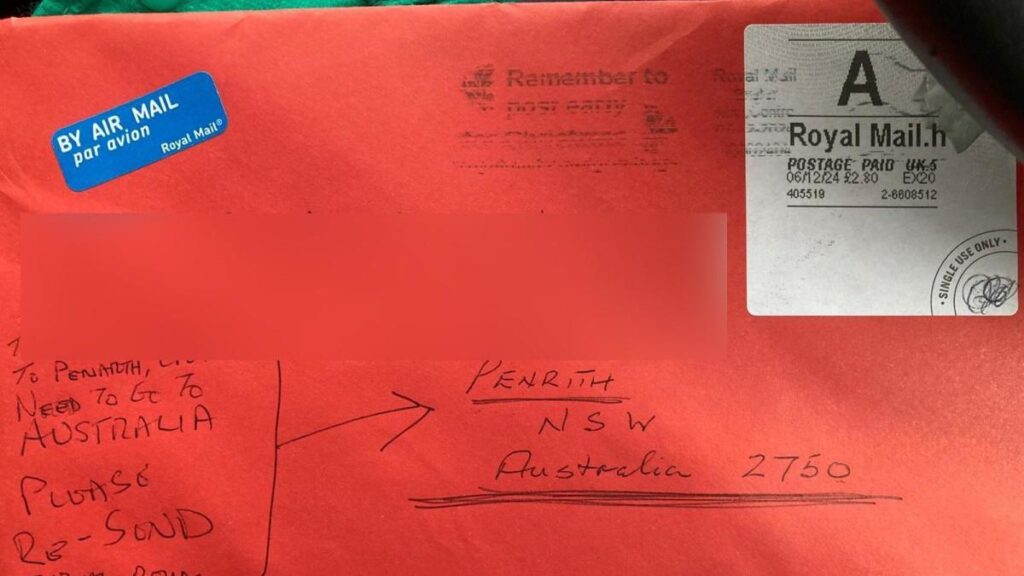In a puzzling incident, Keith Georgiou from Penarth, Vale of Glamorgan, received a letter that was intended for a recipient over 10,500 miles away in Penrith, New South Wales, Australia. Upon discovering the letter, it became clear to Mr. Georgiou that a significant postal mix-up had occurred, as the only commonality between his address and that of the intended recipient was the abbreviation “NSW” for New South Wales. Mr. Georgiou was understandably baffled at how a letter destined for Australia could end up in South Wales, prompting him to question the efficacy of the postal sorting system. His experience sheds light on broader issues surrounding postal deliveries and the occasional errors that can occur, even in a well-established postal service.
Mr. Georgiou noticed that the letter had been posted from the Exeter area, which only added to the confusion as he realized the mail must have gone through several sorting offices without anyone catching the mistake. “It’s got the airmail sticker, everything correct on it, and it ends up in South Wales,” he remarked, highlighting his disbelief that the letter had strayed so far from its original destination. This case raises concerns about the postal system’s efficiency, especially considering Mr. Georgiou’s prior experience of receiving letters meant for Australia, underscoring the irony of a delivery system missing its target despite having multiple checks and procedures in place.
The timing of the incident was particularly noteworthy, as it coincided with recent negative news about Royal Mail, including their £10.5 million fine for failing to meet delivery targets. Mr. Georgiou expressed frustration that not even the postman delivering the letter seemed to question the glaring discrepancy in addresses. With the importance of accurate mail delivery underscored in popular discourse, his anecdote serves as an example of how even minor errors can accumulate into larger issues that affect a postal service’s reputation and reliability.
After the initial shock of the delivery mishap, Mr. Georgiou took responsibility for rectifying the situation by re-posting the letter to its rightful destination in Australia. To assist in the return of the letter to Penrith, he included a note informing Royal Mail of the strange occurrence and the need for better oversight in mail sorting. His hope was that the correct sorting would now take place and that the letter would successfully reach its intended recipient this time around, sparing him from another comical but frustrating delivery error.
Royal Mail commented on the incident, emphasizing the scale of their operations, especially during busy periods like December when they can deliver up to 35 million letters a day. They acknowledged that while mistakes occasionally happen, they strive to catch errors during the sorting process. In this particular case, the mix-up arose when the letter addressed to Penrith was mistakenly read as Penarth, illustrating how small oversights can lead to significant mishaps in mail delivery.
The incident serves as a reminder of the inherent challenges within postal systems, where millions of letters are handled each day. Though it may sound trivial on the surface, the question of how such a glaring mistake managed to pass through several layers of postal checks elicits both humor and concern. As Mr. Georgiou found solace in resolving the issue on his own, it highlights the importance of attentive service and the ongoing need for improvements in mail sorting processes. In an age where effective communication is critical, ensuring that parcels and letters reach their intended destinations is more important than ever.

